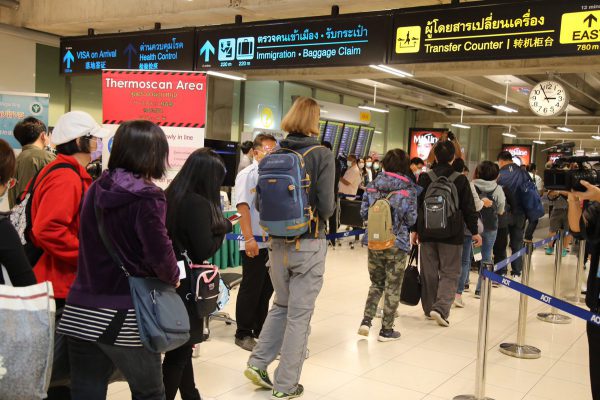BANGKOK, 9 March 2020: Clarity is clearly in short supply when the subject is how to battle Covid-19 at your borders. In the space of just a week, Thailand’s Public Health Ministry dithered on how to deal with travellers from four hot-risk countries; China (including Hong Kong and Macau), South Korea, Iran and Italy.
At one point the Ministry of Public Health announced that all travellers from the high-risk countries, including transit passengers, would be quarantined for 14-days. That’s a great way to tell people not to bother travelling whatever the state of their health.
Perhaps someone pointed out that most travellers from China and South Korea book holidays of less than 14 days. Who in their right mind would book a holiday to Thailand that starts with a 14-day lock-down in a hotel room?

As quickly as it appeared, the rule vanished, but it left thousands of travel agents worldwide struggling with mixed messages. It cost the country and damaged its reputation far more than the trickle of fake news or Facebook’s frenzied scribbles.
So while Thailand’s MOPH has worked hard and succeeded in battling the spread of the disease in Thailand gaining the praise of the World Health Organisation, it has dropped the ball when it comes to communicating a clear message to would-be travellers worldwide.
A leading tour operator who knows Thailand like the back if his hand messaged me from Europe asking: “Yes or no will a traveller from Germany, France, Switzerland be quarantined for 14 days in Thailand once they arrive?”
It proved impossible to get a timely ‘yes’ or ‘no’ answer from the Tourism Authority of Thailand, and that is the single agency that the tourism industry relies on to provide clarity when faced with chaos. It’s the pointsman for the industry to keep communications on track and having a competent global network to reach the global travel trade when other channels dither. More than ever, TAT needs to make sense of the misguided statements released by ministries to present plausible updates that cut through the clutter. It needs a fast response team.
By now the dust has settled. It appears travellers are still welcome and will only face an enforced quarantine if the Thermoscans and temperature checks at airports red flag them. In addition, aircraft arriving from the four high-risk countries and territories (there are very few flights operating now) dock at specific airbridges where rigorous checks take place before passengers proceed to passport checks and mingle with other passengers.
Travellers who are resident in high-risk countries are now going through temperature checks before boarding planes to fly to Thailand and need to show a heath certificate signed by their doctor at the check-in counter.
The travel industry can do without the uncertainty and confusion resulting from see-saw quarantine statements made by various ministries. On the ground, travellers recognise that comprehensive health checks are in place at borders that meet WHO standards. Often it’s the off-the-cuff comments that do the most damage and send mixed messages. Instead, the goal should be to eliminate ambiguity so holidaymakers can assess the risk and make a rational choice on whether to go ahead with their trips.







